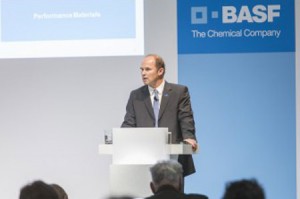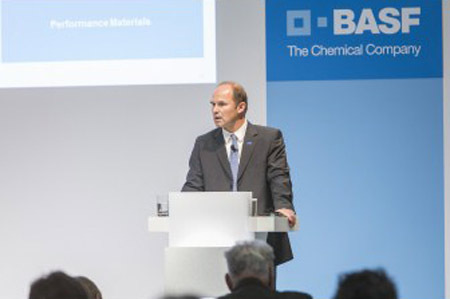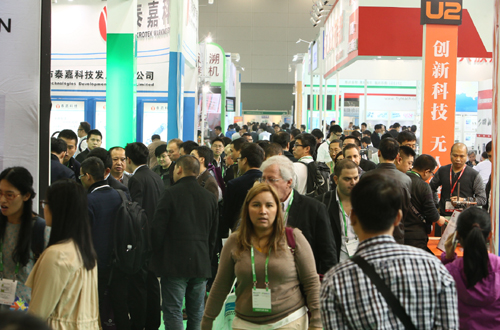In cooperation with TÜV SÜD, BASF has developed a process for flexible use of renewable raw materials in its Production Verbund with a methodology for allocating renewable feedstock to selected certified sales products.
The company announced the news at a press conference in Ludwigshafen, Germany, a kick-off event in the run-up to the world’s largest plastics trade fair, K 2013, which runs from October 16-23 in Düsseldorf, Germany.

“We are currently stepping up research into a biodegradable, primarily bio-based foam with properties similar to those of polystyrene foam for use as packaging for food and electric and electronic goods,” said Dr. Martin Brudermüller, Vice Chairman of the Board of Executive Directors of BASF.
BASF, working in cooperation with TÜV SÜD, has developed an innovative mass balance approach for flexible use of renewable feedstock in the Production Verbund. As said, the product certified by TÜV SÜD as using renewable raw materials is chemically identical to its conventional fossil-based product.
“Since there is no need to build new plants, this innovative method makes a contribution to sustainability,” emphasizes Dr. Brudermüller.BASF is also strengthening its specialty polymer business with a number of investments, which include expanding production of engineering plastics in Ludwigshafen and the acquisition of Mazzaferro’s polyamide polymer business in Brazil.
In addition, the company is investing in basic products required for the specialty polymers business, for example methylene diphenyl diisocyanate (MDI) and toluene diisocyanate (TDI).”Innovative customer solutions increasingly require efficient interdisciplinary cooperation across scientific disciplines. BASF has a competitive advantage here due to the breadth and depth of its portfolio and because of its Know-How Verbund,” said Dr. Brudermüller.
By bundling all specialty polymers in the newly created Performance Materials division, BASF aims to continue growing faster than the market with its downstream plastics, as well as large-volume monomers and commodity polymers.
Source: http://www.adsalecprj.com/Publicity/MarketNews/lang-eng/article-67006615/Article.aspx







